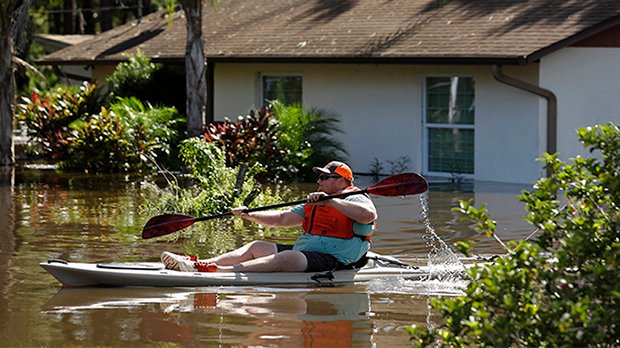 A man paddles a kayak near a flooded home along the Alafia River in Lithia, Fla. A storm surge pushed water into the low lying area. (AP Photo/Chris O'Meara)
A man paddles a kayak near a flooded home along the Alafia River in Lithia, Fla. A storm surge pushed water into the low lying area. (AP Photo/Chris O'Meara)
When Hurricane Sandy pummeled New Jersey in 2012 it drowned financial adviser Doug Quinn's house in 3 feet of water, and introduced him to a world of fraud and abuse led by flood insurance adjusters and engineers, some of whom even created false reports to underpay storm victims.
Seven years on, Quinn's still fighting to eradicate what he says is an "epidemic" of fraud by insurance industry staff.
Recommended For You
Want to continue reading?
Become a Free PropertyCasualty360 Digital Reader
Your access to unlimited PropertyCasualty360 content isn’t changing.
Once you are an ALM digital member, you’ll receive:
- Breaking insurance news and analysis, on-site and via our newsletters and custom alerts
- Weekly Insurance Speak podcast featuring exclusive interviews with industry leaders
- Educational webcasts, white papers, and ebooks from industry thought leaders
- Critical converage of the employee benefits and financial advisory markets on our other ALM sites, BenefitsPRO and ThinkAdvisor
Already have an account? Sign In Now
© Touchpoint Markets, All Rights Reserved. Request academic re-use from www.copyright.com. All other uses, submit a request to [email protected]. For more inforrmation visit Asset & Logo Licensing.







